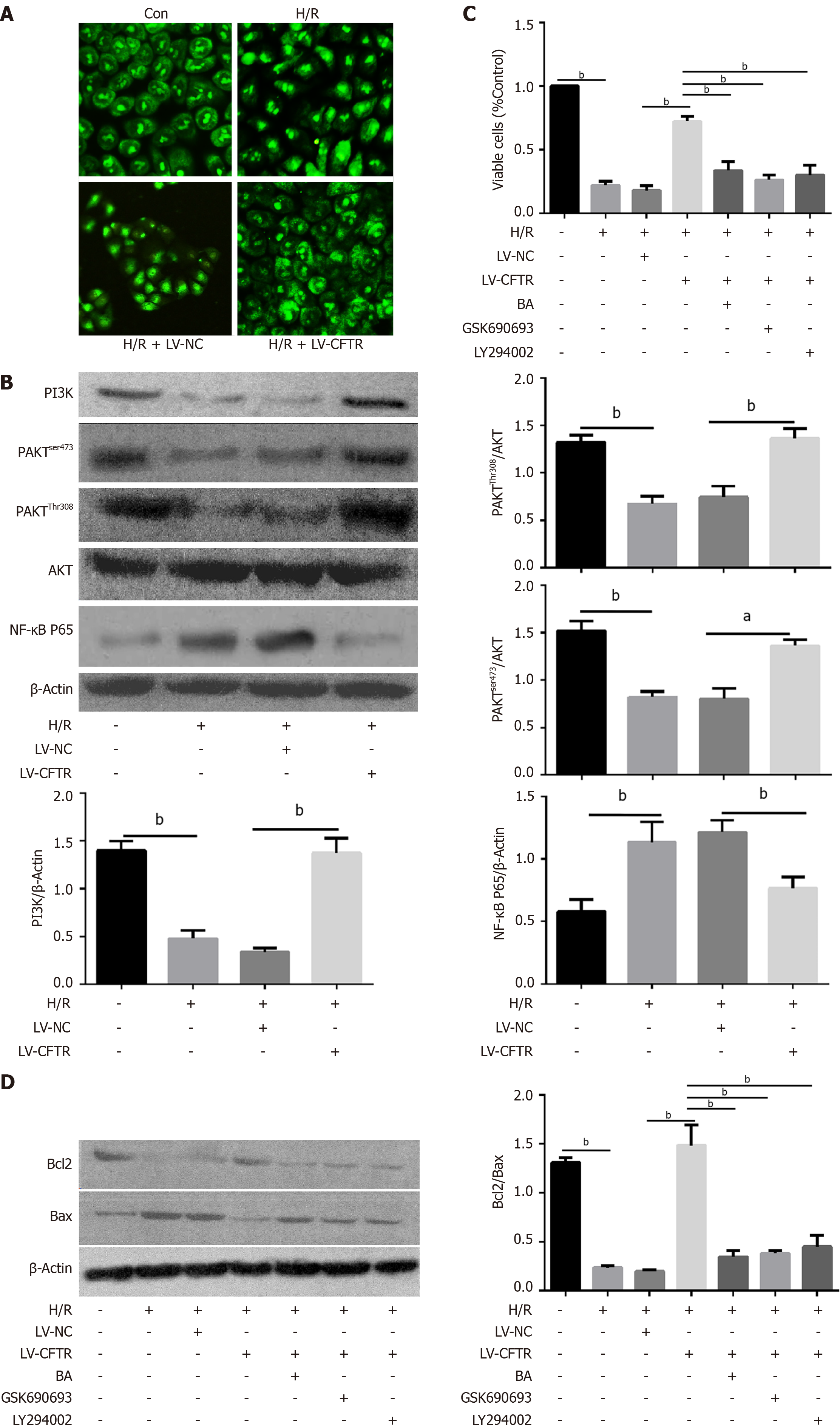Copyright
©The Author(s) 2022.
World J Gastroenterol. Mar 7, 2022; 28(9): 918-932
Published online Mar 7, 2022. doi: 10.3748/wjg.v28.i9.918
Published online Mar 7, 2022. doi: 10.3748/wjg.v28.i9.918
Figure 4 Cystic fibrosis transmembrane conductance regulator protected the Caco2 cells from hypoxia/reoxygenation-induced apoptosis by PI3K/AKT/NF-κB pathway.
A: Representative images of immunofluorescence staining for NF-κB P65 in Caco2 cells after the LV-cystic fibrosis transmembrane conductance regulator (CFTR) transfection (n = 3); B: Representative western blotting and quantification data for PI3K, p-AKTser473, p-AKTThr308, and NF-κB P65 after LV-CFTR transfection, aP < 0.01 and bP < 0.001 vs control (n = 3); C: Cell viability was tested using the CCK8 kit after LV-CFTR transfection and treatment with NF-κB activator Betulinic acid (BA), AKT inhibitor GSK690693 and PI3K inhibitor LY294002, bP < 0.001 vs control (n = 3); D: Representative Western blotting and quantification data for cell apoptotic proteins Bcl-2 and Bax after LV-CFTR transfection and treatment with NF-κB activator BA, AKT inhibitor GSK690693 and PI3K inhibitor LY294002. Data are presented as mean ± SD. bP < 0.001 vs control (n = 3).
- Citation: Dong ZW, Liu H, Su FF, Fan XZ, Zhang Y, Liu P. Cystic fibrosis transmembrane conductance regulator prevents ischemia/reperfusion induced intestinal apoptosis via inhibiting PI3K/AKT/NF-κB pathway. World J Gastroenterol 2022; 28(9): 918-932
- URL: https://www.wjgnet.com/1007-9327/full/v28/i9/918.htm
- DOI: https://dx.doi.org/10.3748/wjg.v28.i9.918









